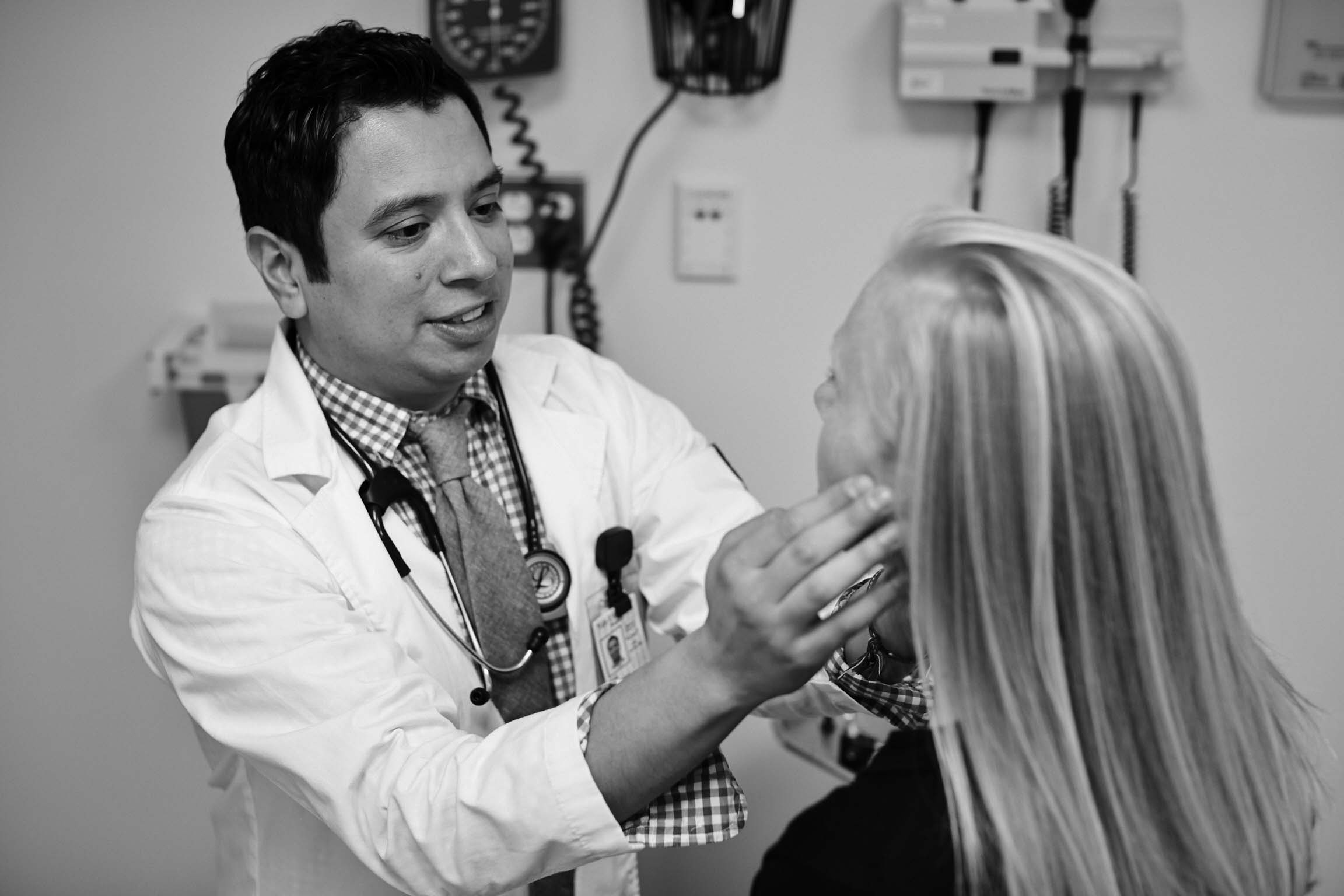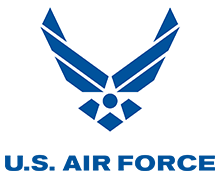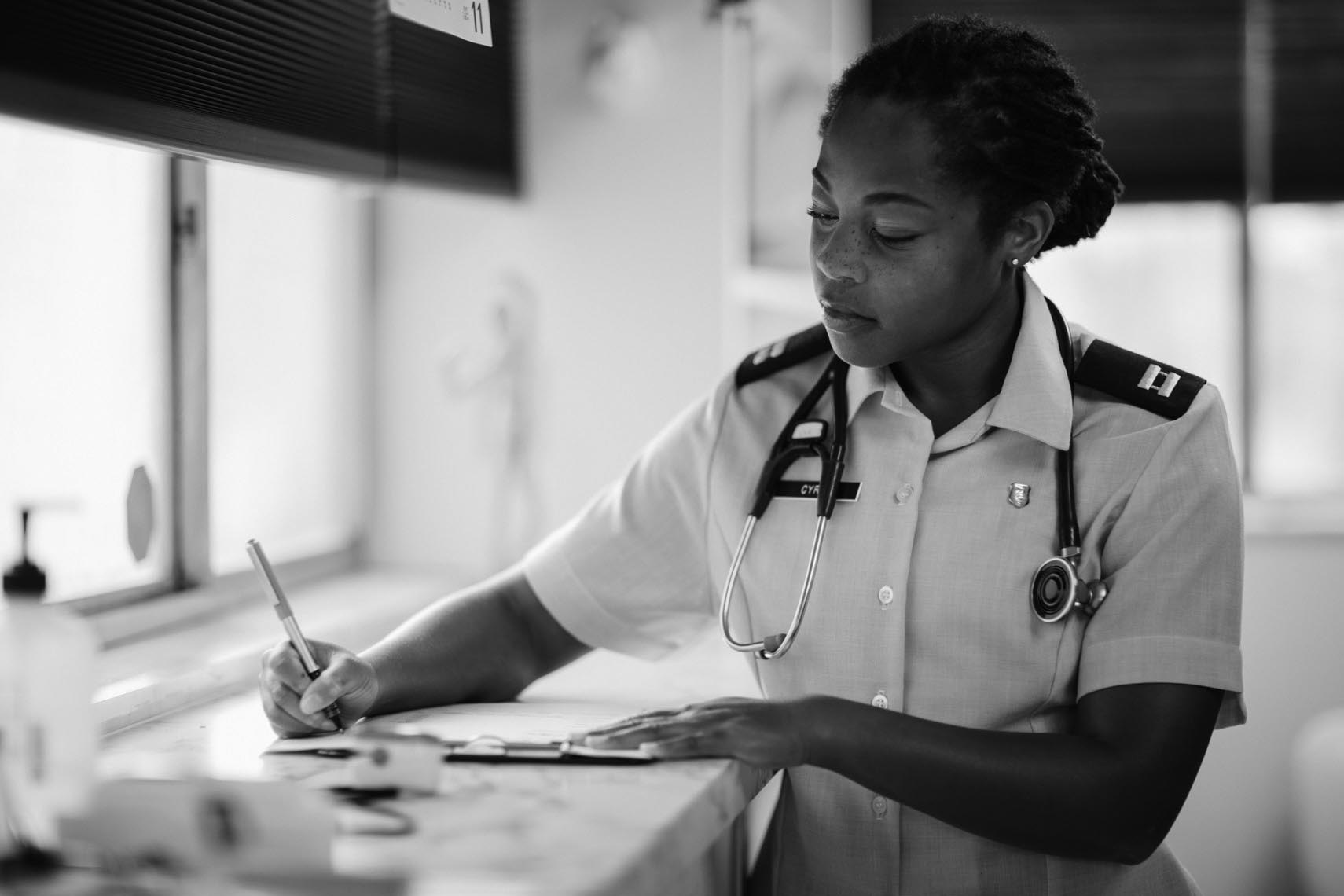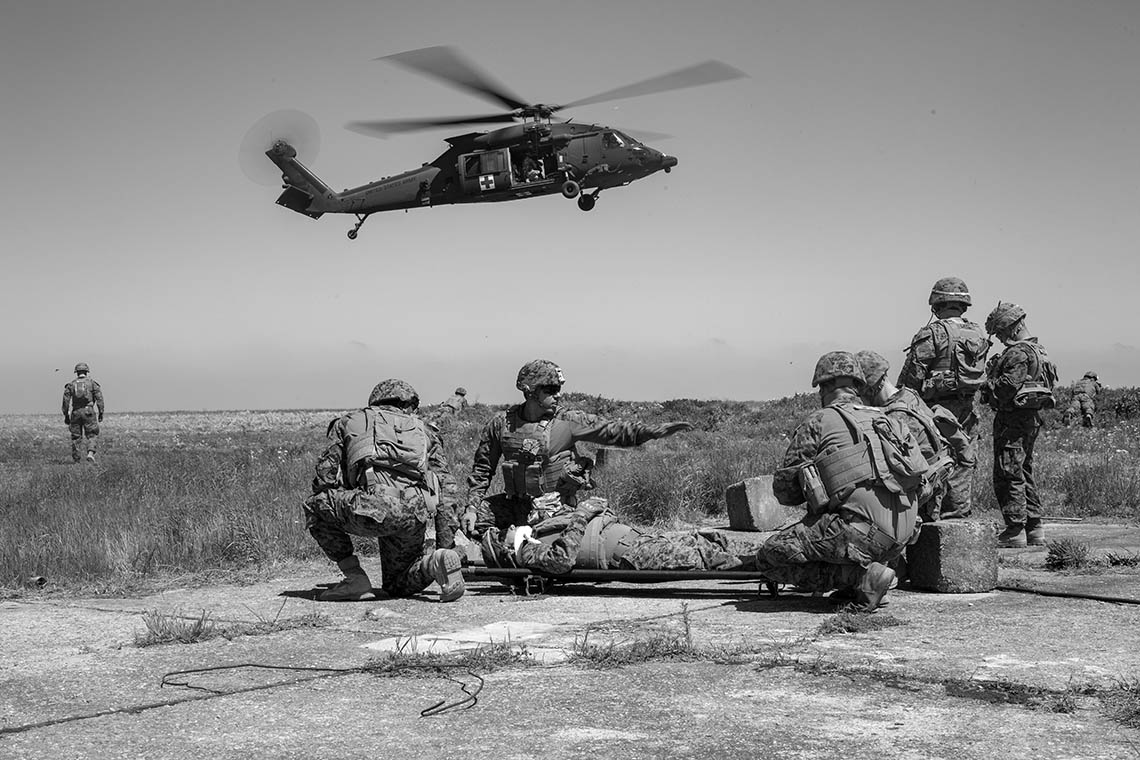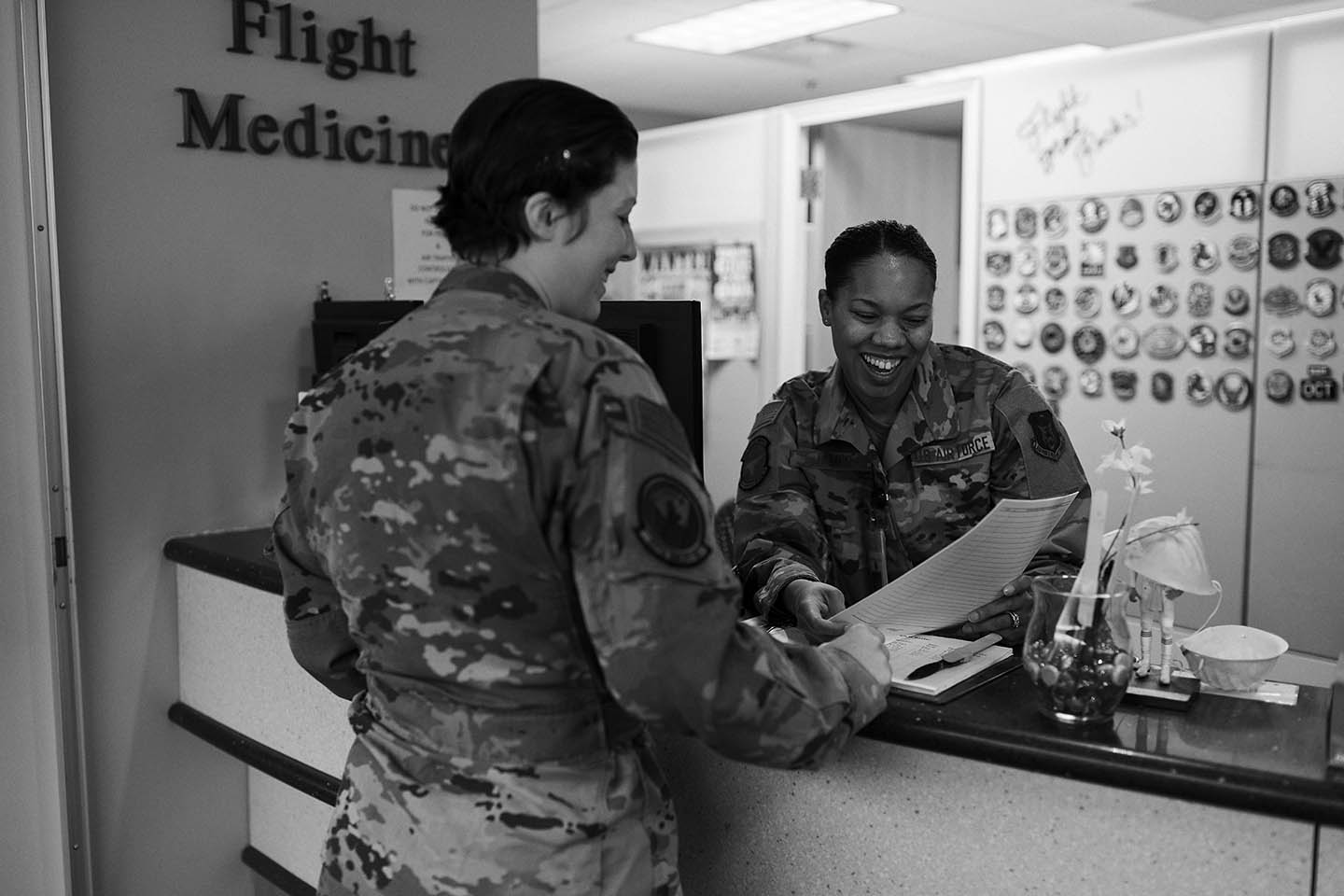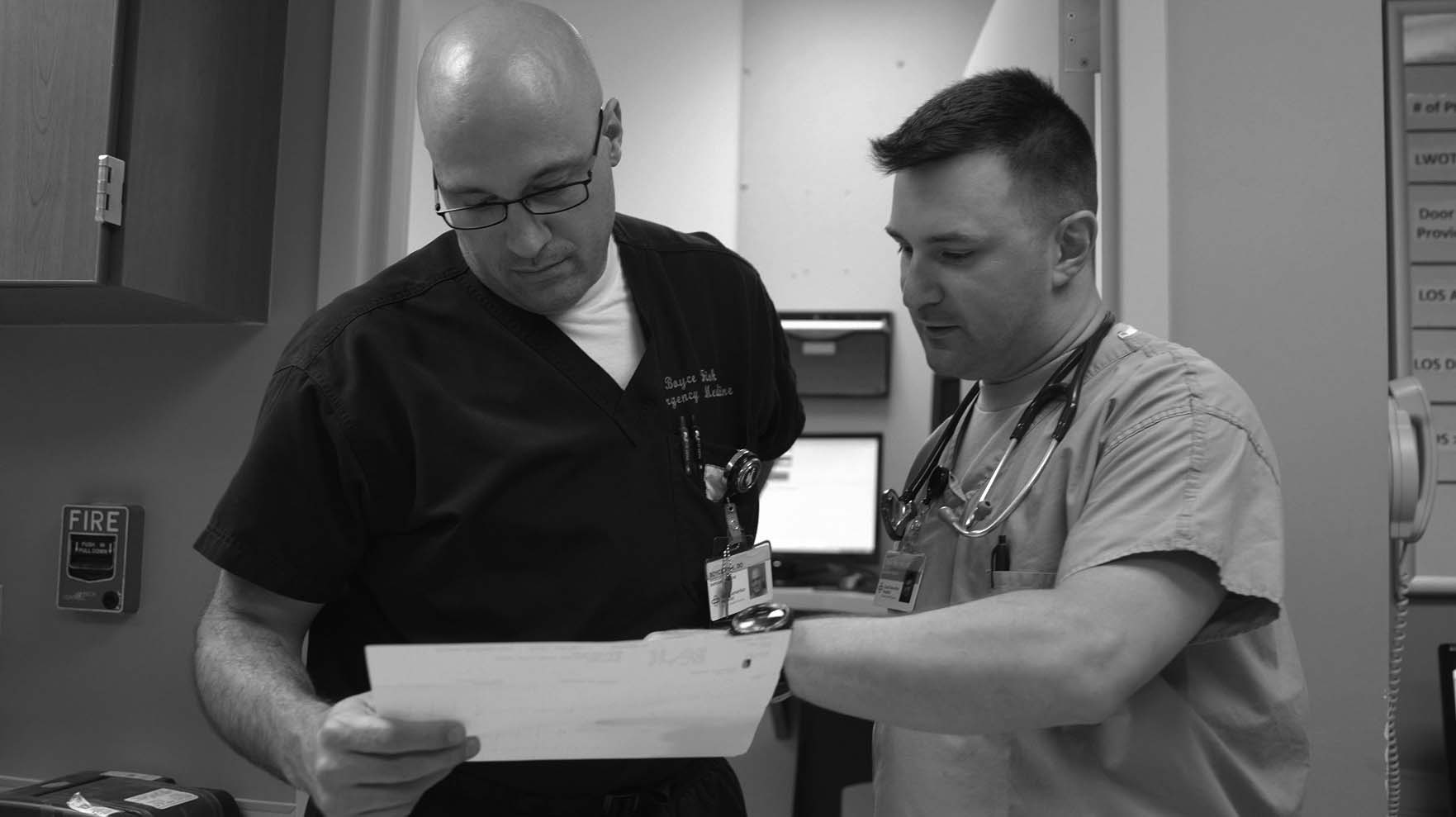- FAQs
- |
Licensed Physician Options
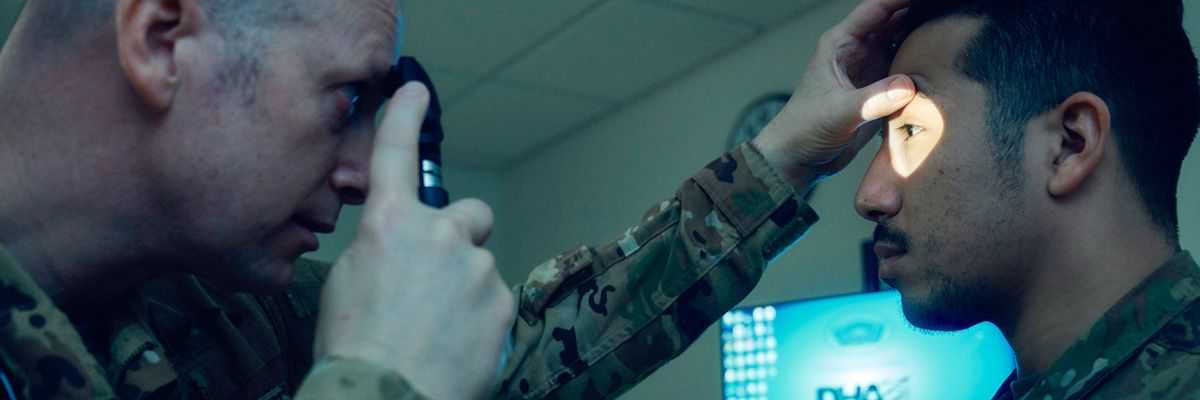
Licensed physicians can serve in the Military on a full-time or part-time basis. Whichever option you choose, the Military will provide all the tools you need to practice your specialty and spend time with patients without worrying about overhead, personnel or budgets. Additionally, you could receive a substantial signing bonus, depending on your specialty.
Lt. Col. Christopher Loyke, D.O. U.S. Army Family Physician
Learn how a civilian doctor successfully transitioned to military medicine after 20 years of private practice.
Lt. Col. Christopher Loyke, D.O. U.S. Army Family Physician
Learn how a civilian doctor successfully transitioned to military medicine after 20 years of private practice.
LOYKE: I'm Christopher Loyke I'm a lieutenant Colonel in the United States Army Reserve on the civilian side. I'm chief medical officer of University Hospitals in Cleveland Parma Medical Center and director of medical education of their internal medicine and film medicine programs and then my undergrad was a Creighton University in Omaha Nebraska. Medical School is Ohio University College of Osteopathic Medicine in Athens Ohio. I did three years of postdoctoral training at Brentwood Hospital in Cleveland Ohio and then practiced in private practice setting for about 20 years.
I got a cold call from a recruiter for me across in St. Louis name was Lisa Promod and she
called me up on a Thursday afternoon. I've been working Thursday afternoons for 15 years in the office 1 to 8 and at three o'clock in the afternoon I got an overhead page for a phone call and ironically the only time I ever get overhead pages or usually if a physician is calling, they won't page otherwise. I answer the phone it's Dr. Lakey you know I'd be wondering if you were interested in taking care of Military family soldiers and military families and I said absolutely I'd be delighted to then she said that's great that's great Dr. Lakey thank you and your
country thanks you know there's just one catch you know you have to join the Army and that's what I told I call her back.
From that point on when I heard about the offering that was 90 days every three years and that the country needed me. After discussion with my wife when I got permission, I went ahead and and signed up so I signed on raised my hands said the oath December of 2011 and put the uniform on for the first time April 2012 deployed Afghanistan in October of 2012. Having no military background and nobody in my family having had a military background I really my notion of the military was really only off TV and things that I have heard, and I was pleasantly surprised it was not anything what I expected. It is a family and you're well taken care of the medical equipment and training is state-of-the-art and deployed environment they have nicer ventilator systems than used to use than I have in my hospital well I've been working at for twenty years.
When I initially talked to the recruiter I'd asked I didn't want any that weekend stuff you know I didn't I didn't need any of that I just wanted to deploy and I told him if I didn't deploy I wouldn't be a soldier for very long so he put me with a group called APMC Army professional Management Command. I was wrong about weekend drill weekend drill actually ended up being one of the most pleasant experiences you know I was 49 years old when I joined so after working in private practice people could not believe that I joined the Military. My partners were convinced I was getting a million dollars I have a senior partner who just absolutely thought I was full of balogne thought there's no way you're doing this to serve, you're getting way more money tell me tell me. Kris how much you makin how much they given you to do this people couldn't believe it the family. Most of my children were already out of college and working through grad school and my wife had been a stay-at-home mom had returned to a career so from a timing standpoint it was perfect.
You know it's very interesting in a small community when you practiced in a family medicine clinic in the same clinic for 18 or 19 years it becomes like family you know your patients become your family and friends and there was a lot of astonishment a lot of fear for my personal safety a lot of people telling me oh well maybe maybe you won't get deployed and of course inside I'm thinking why would I join if I'm you know I don't need something to do I don't I don't need to make friends I don't need something to on the weekends you know I strictly joined to deploy and to serve. There's no secret handshake but once you join the Military you realize how many people are out there serving their country and these are tremendous people quality people and a lot of them are making tremendous sacrifices to serve.
Serving in the military mitigates burnout it gets the practicing physician refocused on what's important. My two greatest passions on the professional side are teaching education and service and I'm a strong believer that if you went into medicine for the right reasons then teaching and service are a part of your DNA that what you want to do and I think when you're in the busy medical practice like a family practice but certainly in surgery and subspecialties you start to lose sight of why you want into medicine to begin with. You get caught up in the day-to-day routines it's stressful there's not a lot of free time the military gives you that added dimension to your practice that helps mitigate fatigue it helps mitigate burnout and that refocuses you on what's important which is service to others that kind of mental break.
A 90-day deployment two weeks in the summer even a three-day weekend while you can get away from the normal rigors of your daily practice and work with a different group of individuals who are equally talented equally skilled at what they do I think that's probably the greatest benefit to me and to people like me I highly recommend service in the military to my peers.

